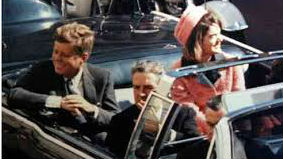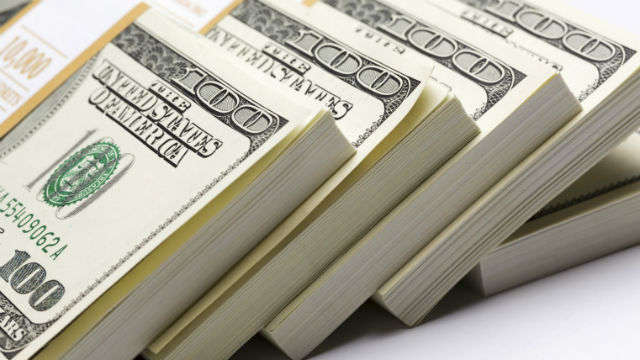The Unbearable Lure of Love Field

I confess that the media around the 50th anniversary of the Kennedy assassination has me engrossed. I’m like Woody Allen’s character in Annie Hall, who realizes that he’s getting obsessed with the Warren Commission report as a ruse to avoid his girlfriend.
The Warren Commission, and the Kennedy assassination as a cold case file, is perfect fodder for insomniacs, the paranoid, and those mired in denial and self-delusion in their personal lives. It provides volumes of detail and data, but little clarity. It’s like a novel that goes on forever, but has no cumulative plot and, therefore, can be picked up at any random moment and read anew.
I wasn’t alive when Kennedy was shot, although of course my parents and older siblings remember it vividly. It’s one of the unique features of what was then a newfangled technology that home movies and television provide memories-once-removed for those of us who didn’t live through the actual assassination. I have a visual “memory” of the event comprised of Abraham Zapruder’s home film, Walter Cronkite’s tearful pronouncement on television of Kennedy’s death, and my father’s Super-8 home movies of the funeral procession.
Imagine if the same assassination happened today, with thousands of I-phones and recording devices focused on the murder. It’s unlikely that conspiracy theories could have survived the technological crossfire of so many devices focused on the moment.
But in 1963, there was just enough visual technology, and evidence, to stoke uncertainty about the sloppy official investigation, but not enough technology to provide definitive closure.
For my generation, which grew up with the memory-once-removed of the assassination, the tragedy still has seductive power. I don’t think this power is rooted in a lofty abstraction about the “death of American idealism,” or the notion that Kennedy was an exceptional president, although he was a cool one, when the consensus leans toward an uneven record—a mediocrity, with promise. It’s quite plausible to wonder if we would have had civil rights legislation in 1964 had Kennedy remained at the helm instead of Lyndon Johnson, the maestro of the 20th-century Congress.
Obama honored Kennedy yesterday by noting that he’s remembered for his “idealism,” and not the way he was killed. That may be true for the baby boomer generation, some of whom saw him as a political apotheosis thwarted by assassination. But I beg to differ. For younger Americans, the President might very well be most vividly remembered for the way he died.
Dallas was an extraordinary and exceedingly rare event, even if it had occurred with an ordinary man: it is a homicide that was filmed—filmed before, during, and after. In the films of that morning I instinctively search out some gesture, some overlooked comment or simple expression, which reveals presentiment. Surely, there must be some inner warning or sense of one’s imminent demise. The most eerie aspect of the Kennedy films is their banality. Watch footage of Love Field once, or a thousand times, and observe Jackie in her pink Chanel suit, and Jack shaking hands, and there is nothing to see by way of foreshadowing. Reality falls short of the novelist’s mark.
I learned from one of the documentaries this week that seconds before the explosive head shot, Jackie was thinking about the underpass ahead in the motorcade, and that once they got there, she would enjoy a reprieve from the blaring sun. Apparently, the President had been quite taken by the Texas boys’ choir that had performed at his breakfast in Ft. Worth, and he had been commenting on their songs all morning as the motorcade moved ahead. A song they performed might have been his last thought, or his last pleasant one.
The visual archive from Ft. Worth to Love Field to Dealey Plaza records a human’s last hours of life, and his demise, and there is no way to glean the demise from the hours. Rationally, I know that there isn’t. But maybe we still hope to see it foreshadowed, anyway.
When my son was about four years old, he was confused about the movies. He didn’t understand that the ending of a movie never changed, no matter how many times you saw it in the theater. Part of me makes the same mistake with the movies of Love Field. In a fit of magical thinking, I still imagine that one time the ending will change, and that one of a thousand minute details or decisions will align differently, to different outcome, or that they won’t get into the motorcade car. And, every time, they do. Maybe some of the psychological urge among conspiracy theorists to parse the finite details of the visual evidence is grounded in a craving to see the same impossible thing, to transform the event itself by fracturing, shattering, and manipulating its film record.
But there is no alternative ending. There isn’t even a discernible premonition of tragedy, and death. Life was being lived ephemerally, lightly, and in its ordinary gestures and preoccupations until, in a half-second, it was over.





